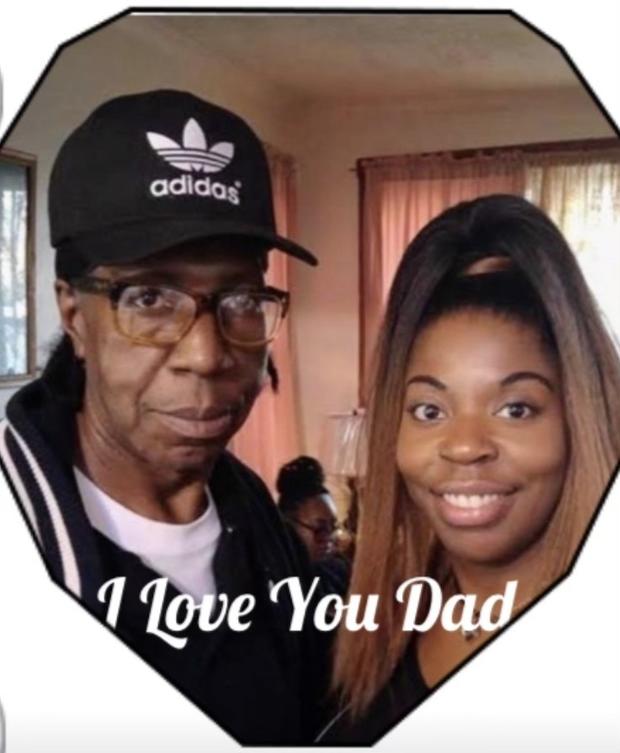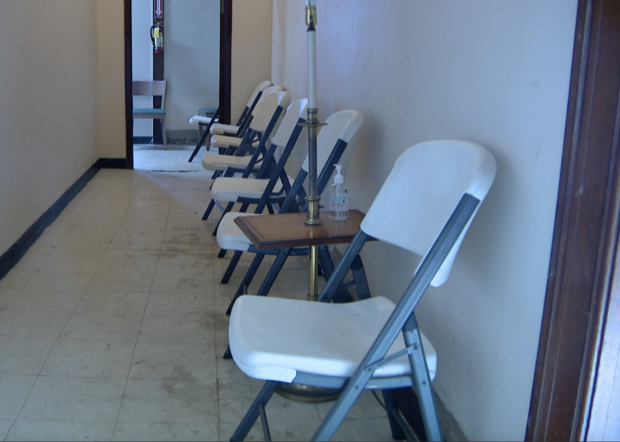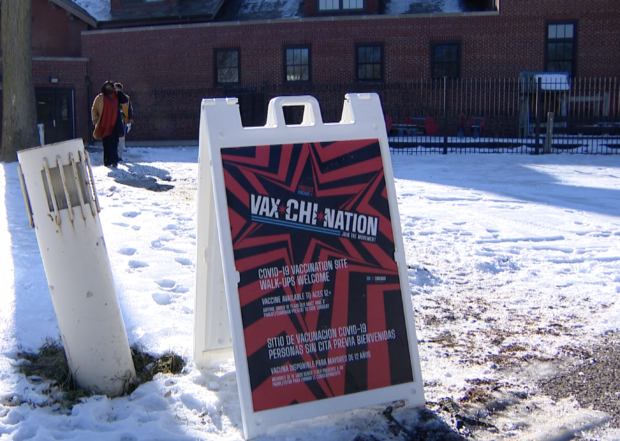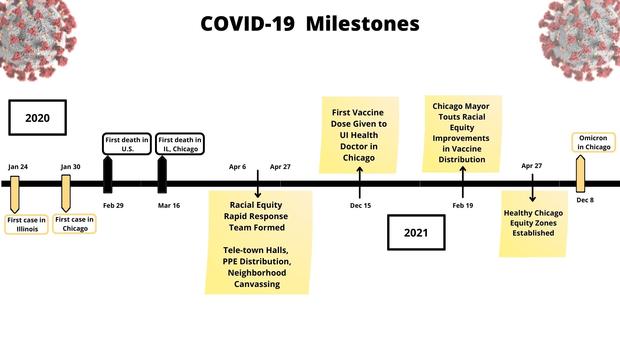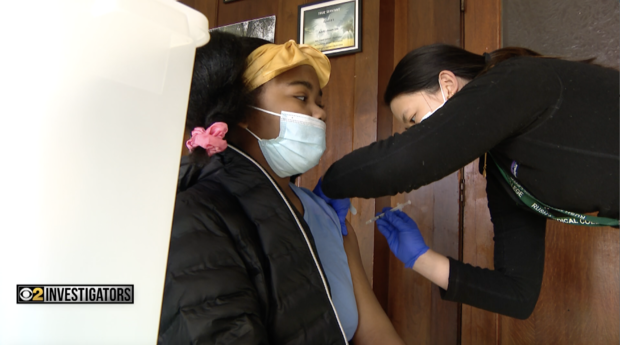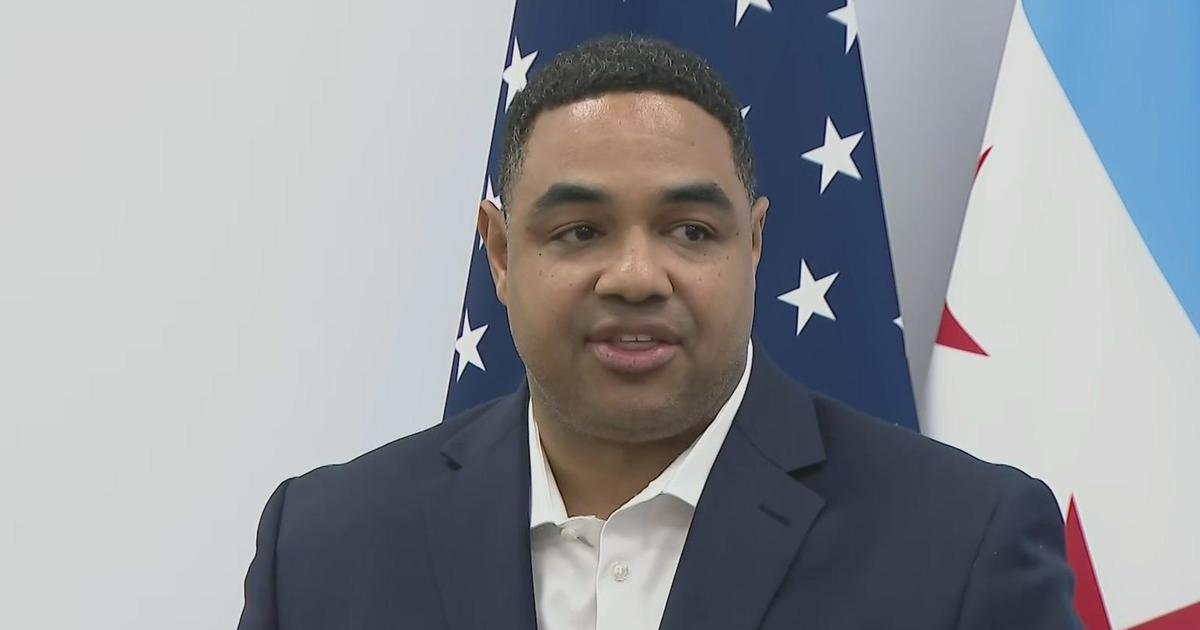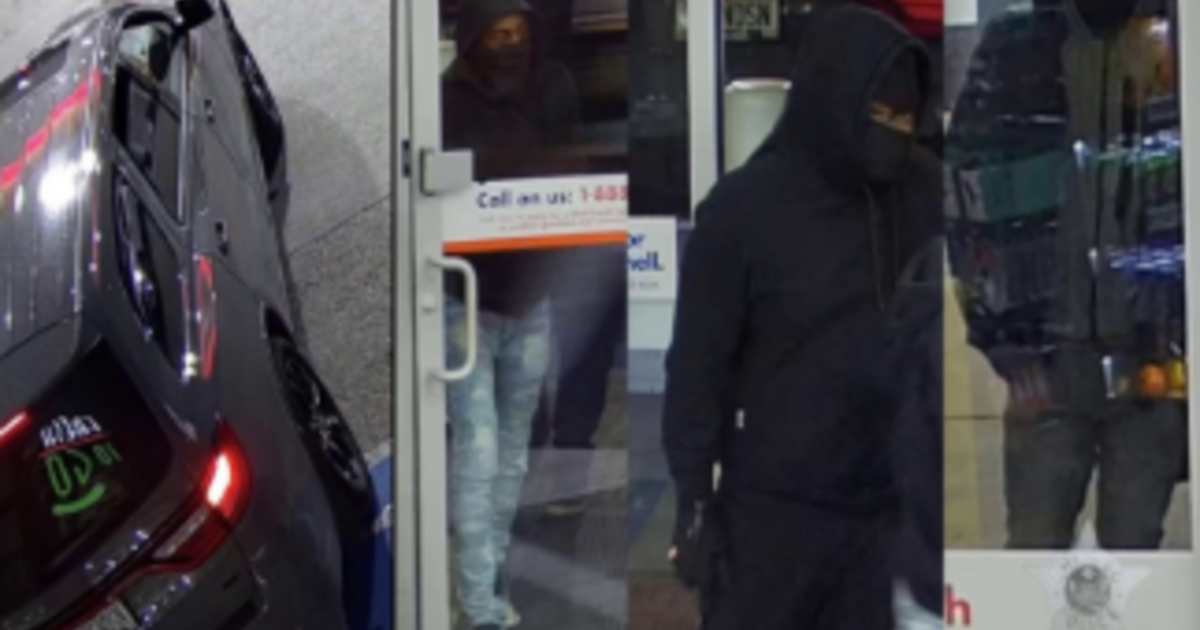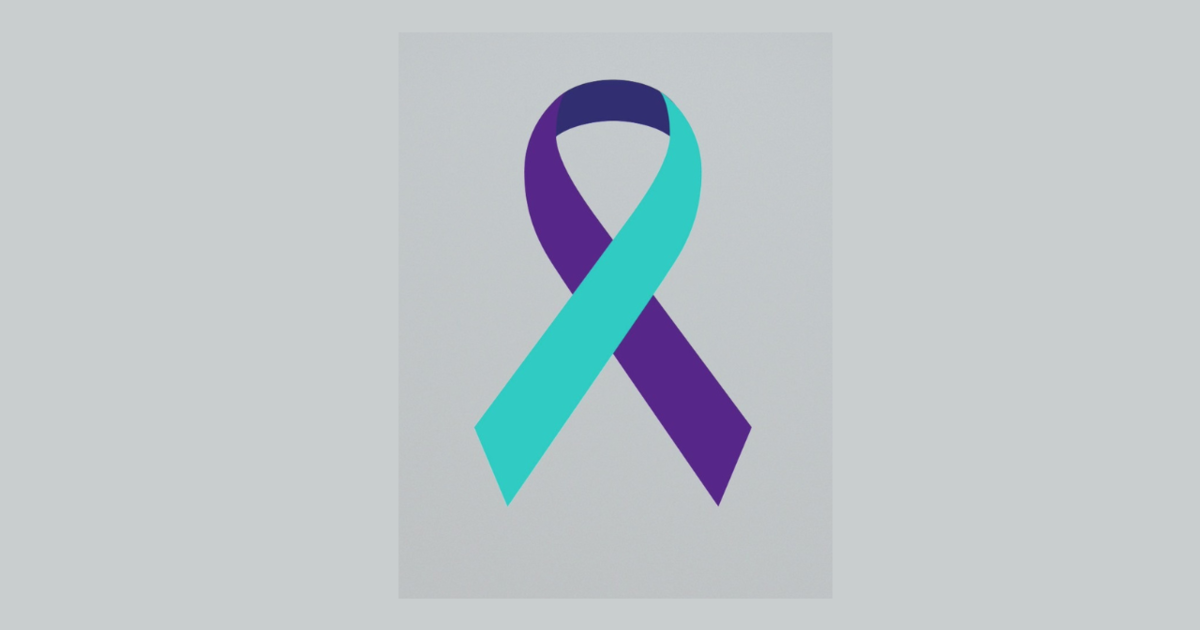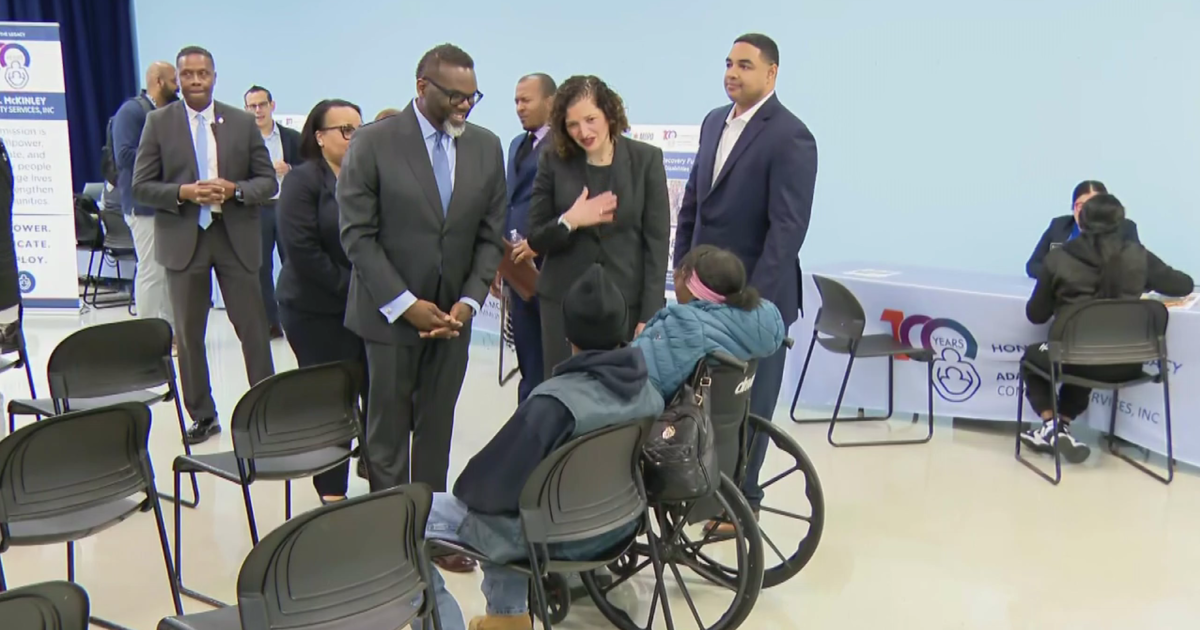'We're Back There Again?' Disproportionate Number Of Black Chicagoans Died From COVID-19 In Recent Surge; What's The Solution?
by Dorothy Tucker, Samah Assad, and Carol Thompson
CHICAGO (CBS) — More than half of the Chicagoans who died during the recent COVID-19 surge were Black – an alarming disparity community leaders and city officials have struggled to overcome since the beginning of the pandemic.
In April of 2020, the city formed the Racial Equity Rapid Response Team to address disparities that quickly emerged. In that month alone, 1,010 people died from COVID, and 522, or nearly 52 percent, were Black, a CBS 2 analysis found. Black people make up 30 percent of city's population.
Community organizations were faced with seemingly impossible challenges, like overcoming decades of disinvestment, a lack of access to healthy food, and testing inequities to ease the impact during the worst part of the pandemic.
Map: Samah Assad/CBS Chicago; Source: Cook County Medical Examiner
Dr. Marshall Hatch, pastor of New Mt. Pilgrim MB Church in West Garfield, remembers the devastating losses – from members of his own family to his congregation. The trauma left in the wake of those deaths is still felt today.
"It's a pain and a grief," Hatch said. "I mean, I certainly haven't recovered yet."
Despite efforts at the start, and although the number of deaths today are lower than they were two years ago, alarming disparities are still prevalent despite the introduction of vaccines, CBS 2's analysis found.
Vaccines became widely available in mid-April of 2021. Data from the Cook County Medical Examiner show between March and May, white deaths stayed relatively steady. But Black deaths more than doubled in the same timeframe, from 50 in March to 104 in May, even after vaccines became available.
And while the number of deaths increased for both groups during the recent surge that began in December, Black people continued to die in higher numbers.
In January alone so far, at least 601 people in Chicago died from COVID. At least 315 were Black, or 52 percent -- an eerily similar gap compared to what was seen at the onset of the pandemic. That's also the highest number of Black deaths in a single month since May of 2020, when 385 people lost their lives.
"The mayor has used a term just recently, where she's talking about Groundhog Day, and I kind of feel that way as well, that we're back where we started," said Ernest Sanders, executive director of South Shore Works.
Previously, CBS 2 found South Shore was among the hotspots with the highest number of deaths at the start of the pandemic. As a member of the city's Rapid Response Team, and with decades of experience working in the community, Sanders said he's frustrated to see the death count spike again. At least 209 people in South Shore have died from COVID. Nearly 16 percent, or 33 people, lost their lives since December alone, when Chicago saw its first case of the Omicron variant.
"I'm still alarmed because after two years of work, of really engaging in the community, distributing masks and hand sanitizers daily, hosting pop-up events…it's like, really? We're back there again?" Sanders said.
One of the city's recent deaths was 72-year-old Robert Brown.
Tanya Vaughn said she witnessed the virus pass from family member to family member before Brown, her father, contracted and succumbed to it a week before Christmas. Vaughn added his underlying health conditions made it more difficult for him to overcome the virus.
"His sister had COVID, it was going around the house," she said. "He ended up with pneumonia with other complications…it just took a toll on his body."
A resident of Chicago's Austin neighborhood, Vaughn wasn't surprised to learn her community is among those hardest hit by COVID. At least 298 people there have died – more than anywhere else in the city, data from the Cook County Medical Examiner shows.
"I've lost several family members to COVID, and I had a lot of family members that tested positive, and they didn't do so well with it," Vaughn added.
Officials are concerned about the surge in Black deaths. Candace Moore, the city's Chief Equity Officer and a head of the Rapid Response Team, said it's frustrating to the see the spikes again, "when we've made so much progress both as a city and as a country."
"One of the things that we see, and particularly in this Omicron surge, is that [the] unvaccinated still drives a lot of the worse outcomes – death, severe hospitalization," Moore said in a recent interview with CBS 2. "And the challenge I think, particularly when we're talking about the Black community, is we still see lower vaccine rates despite vaccines being really available."
The city's data shows that's true. Just over 66 percent of the city is fully vaccinated. Only just over half of the city's Black population is fully vaccinated – less than any other group.
"As a Black woman, personally, it breaks my heart," Moore said. "It breaks my heart to hear conversations where despite so many different efforts that I personally have seen, folks that I care a lot about saying, 'No thank you, I don't trust it.'"
That was no more evident than at a recent vaccine clinic at New Mt. Pilgrim Church , held in partnership with Rush University System for Health.
Amid the recent surge, during a three-hour period on a cold day in early January, the church saw few people enter its doors to get their shots despite the church's ample efforts to get the message out in the community and on social media.
Church Office Manager Rochelle Sykes, who is fully vaccinated, cited a lack of trust in the government due to decades of disinvestment.
"We're sitting here in the middle of a desert with nothing. We can't get anything in this area," Sykes said. "So if you are treating us like that, why would I trust you? …No fruits, no vegetables, no stores, no major pharmacies, no major health center."
While the city's Protect Chicago At Home Program aims to increase access to the vaccines by bringing shots to residents, Sykes said many are scared to allow people they don't know in their own homes. These concerns need to be heard, she added.
"You have to invest back into his community to gain the trust of the people," Sykes said. "People have to feel safe to come out their houses. Seniors don't feel safe coming out, how are they going to get vaccinated? They're scared to let you in their home because of all the violence."
Pastor Hatch, who is also fully vaccinated, said the lack of trust goes back even further. He believes that troubling history, coupled with misinformation about the vaccine today, contribute to the low vaccine rate.
"There is a very unique relationship, a very unique history that the Black community has with medical science," Hatch said. "There's the Tuskegee [Syphilis Study] where Black men were injected with syphilis. There is the history of black women's bodies being used to experiment on.
"And then once we compound that with the absolute barrage of misinformation that can happen in modern social media," he continued, "then it's almost understandable that you have a community like this, where people's initial reaction will be to ask a lot of questions."
Community leaders also said they've faced new obstacles to stopping the spread. In South Shore, Sanders said last December, his community group ran out of PPE, including masks and hand sanitizer.
"We'd exhausted all of our resources, meaning our Street Wellness team passed out all of the masks and hand sanitizers that were available to us," Sanders said. "And we had to wait for the city to kind of replenish their inventory, so that we can replenish ours and continue the work to the community."
And in Auburn Gresham, a community with at least 140 deaths, residents are often reluctant to register ahead of time to get their shots. Carlos Nelson, CEO of the Greater Auburn Gresham Development Corporation, said his organization has worked to overcome those roadblocks by reducing the number of steps it takes for residents to register through special events. He said they've had the most success "meeting people where they are," including bringing vaccine events to churches, open lots and vacant spaces.
"Education is so important, access is critically important," said Nelson, whose group is also part of the city's Rapid Response Team. "Our community continues to suffer, and the information is out there. We've done a really good job of addressing the misinformation, but you still have a significant percentage of community members that still are fearful."
He and Hatch said that's when faith-based organizations can play a critical role.
New Mt. Pilgrim is among 120 other Black churches who are members of Choose Healthy Life, a national program created in response to the disproportionate impacts of the pandemic on Black communities. Its goal is to foster partnerships between Black churches across the country and United Way to not only disseminate accurate information about the vaccines, but also provide a location for testing and shots.
Hatch said places of worship are uniquely positioned as places of trust and comfort in the community. They also "challenge people to think of something larger than themselves."
"Obviously they have a comfort level to come into their house of worship and getting vaccinated because they ultimately trust the institution as well," Hatch said. "And they know that we always have their best interest at heart and certainly wouldn't be involved in anything that we thought was designed to harm them."
Jai Jones, engagement specialist for non-profit Austin Coming Together, said another way to improve that distrust is for those who've gotten their shots to share their stories publicly.
"Giving them real life possibilities and understanding of what it is to be vaccinated, knowing that you're protecting yourself, you're protecting your community, and you're protecting your family," said Jones, who is fully vaccinated. "We like to go out and be honest and transparent and give them something real that they can relate to. I decided to get vaccinated because I wanted to make sure that I was making every effort to protect myself and my family and the community that I love."
So, what's the big picture solution? Due to the decades of systemic inequalities that exacerbated the pandemic's impact on the Black community, as well as distrust in the vaccine, the city's Chief Equity Officer Candace Moore acknowledged "there's no quick fix."
"We actually were able to drive down some of those disparities at different points during the pandemic," Moore said. "The challenge is that even despite some of those major gains, trust is still hugely – or distrust – is still a huge problem," she said. "Misinformation is still being pushed out there about what works for COVID. And so, you have to combat that."
Mayor Lori Lightfoot recently said she was concerned by "the lagging numbers" after attending the U.S. Conference of Mayors in Washington, D.C. She acknowledged the hurdles around improving vaccine hesitancy in Black communities.
"That is a significant challenge when we know, who's getting sick, who's ending up in the ICU, who's dying in our city – it's the unvaccinated," Lightfoot said. "So, there's a tremendous risk that the unvaccinated are taking, particularly given the contagiousness of the Omicron variant."
She said she is looking to other cities like Newark, New Jersey to learn how they increased vaccination numbers. There, 72 percent of the city is fully vaccinated, and 90 percent of the population and are Black and Latino.
"I said man, I got to talk to you, what are you doing? And how can we use those same techniques here in Chicago?" Lightfoot said. "I mean the truth is there is no secret sauce here. It's just diligence, diligence, diligence and meeting people where they are and really just disabusing them of their concerns about the vaccines."
A spokesperson for Newark Mayor Ras Baraka said the mayor hosts a live chat on Facebook three times a week to address misinformation. It's also an opportunity for residents to ask questions about vaccines.
When CBS 2 asked about plans to address these glaring disparities, the Chicago Department of Public Health (CDPH) said it is "redoubling our efforts to inform, engage and vaccinate Black Chicagoans" through efforts like door-to-door canvassing, weekend clinics at City Colleges, partnerships with faith leaders and campaigns aimed at parents and youth.
CDPH said it would also continue to "…fund community organizations to carry out this work as long as the need remains" and to offer and expand in-home vaccination through the Protect Chicago At Home program. To date, officials said more than 50 percent of all "At Home" doses have gone to Black Chicagoans, and the program helps vaccinate more than 1,200 people weekly. You can read CDPH's full statement here.
The Racial Equity Rapid Response Team has also distributed millions of PPE since its inception. You can view information on the team's impact provided by the Mayor's Press Office here.
On the ground, community leaders continue their efforts on the street level.
A new healthy lifestyle hub in Auburn Gresham will open to the public this summer, offering a health center, pharmacy and more.
In the meantime, Nelson said his organization is running vaccination events every week. He and Sanders are also in the process of creating educational initiatives to improve vaccine hesitancy among younger populations.
"Even if one person comes, that's a success," Nelson said.
One of those recent successes is Tanya Vaughn, admittedly a vaccine skeptic. Vaughn said she was previously adamant about not getting the shot because of falsehoods about how the vaccine would impact future health outcomes.
"To be honest, I was one of the naysayers," she said.
But during the recent Omicron surge – and after she lost her father to the virus – she changed her mind. On that cold day in early January, she and her three children, ages 19, 12 and 11, walked into the vaccine clinic at their church New Mt. Pilgrim MB, and got their first shots.
"When you think about if you want to live and you want to be around for family members and your loved ones, you need to save yourself," Vaughn said. "So, get the shot."
Resources for vaccine sites:
